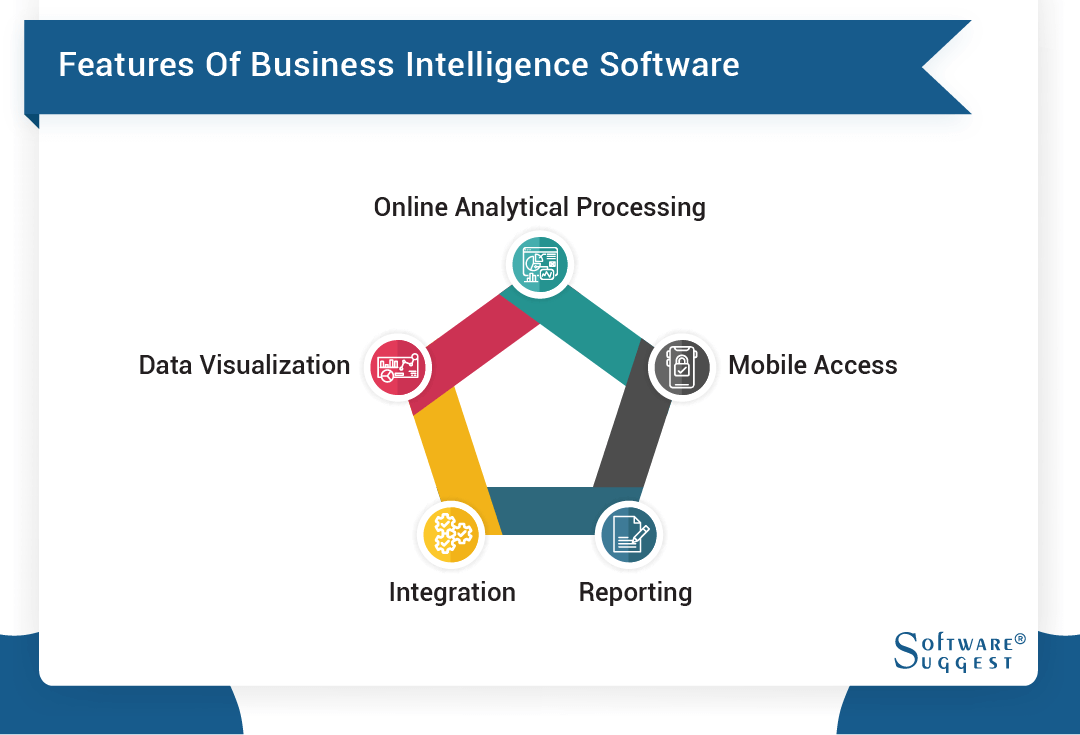
Business Intelligence Software Features Every CEO Needs to Know
In today’s fast-paced and increasingly competitive business landscape, CEOs and executives require accurate and timely insights to make informed decisions. Business Intelligence (BI) software has become an essential tool for organizations to gain a deeper understanding of their operations, customers, and market trends. With the numerous BI software options available, it can be overwhelming for CEOs to determine which features are most critical for their business. In this article, we will explore the essential Business Intelligence software features that every CEO needs to know.
What is Business Intelligence Software?
Business Intelligence software is a set of tools and technologies that enable organizations to collect, analyze, and visualize data from various sources. The primary goal of BI software is to provide actionable insights that support strategic decision-making, improve operational efficiency, and drive business growth. BI software typically includes a range of features, such as data mining, reporting, analytics, and data visualization, to help organizations extract valuable insights from their data.
Key Features of Business Intelligence Software
To get the most out of BI software, CEOs should look for the following essential features:
- Data Integration: The ability to connect to multiple data sources, such as databases, spreadsheets, and cloud applications, is crucial for a BI platform. This feature enables organizations to consolidate data from different systems and provide a unified view of their operations.
- Data Analysis: Advanced analytics capabilities, such as predictive analytics, statistical modeling, and machine learning, are essential for uncovering hidden patterns and relationships in the data.
- Data Visualization: Interactive and intuitive dashboards, reports, and charts help users to quickly understand complex data insights and make informed decisions.
- Real-time Reporting: The ability to generate reports in real-time enables organizations to respond quickly to changing market conditions and stay ahead of the competition.
- Mobile Accessibility: With the increasing use of mobile devices in the workforce, it is essential for BI software to be accessible on-the-go, allowing users to access critical information anywhere, anytime.
- Security and Governance: Robust security features, such as data encryption, access controls, and auditing, are necessary to protect sensitive data and ensure compliance with regulatory requirements.
- Collaboration Tools: Features like commenting, sharing, and workflow management enable teams to work together more effectively and make data-driven decisions.
- Machine Learning and Artificial Intelligence: Integrating machine learning and AI capabilities into BI software can help organizations automate tasks, identify new opportunities, and predict future trends.
Benefits of Business Intelligence Software
The implementation of BI software can have a significant impact on an organization’s performance and profitability. Some of the benefits of BI software include:
- Improved Decision-Making: BI software provides accurate and timely insights, enabling CEOs and executives to make informed decisions that drive business growth.
- Increased Efficiency: Automating tasks and processes with BI software can help organizations streamline operations, reduce costs, and enhance productivity.
- Enhanced Customer Experience: By analyzing customer data and behavior, organizations can gain a deeper understanding of their target audience and develop targeted marketing campaigns to improve customer engagement and loyalty.
- Competitive Advantage: BI software can help organizations stay ahead of the competition by identifying new market trends, opportunities, and threats.
- Better Risk Management: BI software can help organizations identify potential risks and develop strategies to mitigate them, reducing the likelihood of financial losses and reputational damage.
Choosing the Right Business Intelligence Software
With numerous BI software options available, it can be challenging for CEOs to select the right solution for their organization. Here are some tips to consider:
- Assess Your Needs: Evaluate your organization’s specific requirements and identify the features that are most critical to your business.
- Evaluate Vendors: Research and compare different BI software vendors, considering factors such as pricing, scalability, and customer support.
- Read Reviews and Testimonials: Look for reviews and testimonials from other customers to get a sense of the vendor’s reputation and the effectiveness of their solution.
- Request a Demo: Request a demo or trial of the BI software to experience its features and functionality firsthand.
- Consider Integration: Ensure that the BI software can integrate with your existing systems and infrastructure.
Best Practices for Implementing Business Intelligence Software
To ensure a successful implementation of BI software, CEOs should follow these best practices:
- Develop a Clear Strategy: Establish a clear vision and strategy for the implementation of BI software, aligning it with your organization’s overall goals and objectives.
- Assign a Dedicated Team: Appoint a dedicated team to oversee the implementation and maintenance of the BI software, ensuring that it is properly configured and updated.
- Provide Training and Support: Offer training and support to users to ensure that they can effectively use the BI software and extract valuable insights from the data.
- Monitor and Evaluate: Regularly monitor and evaluate the effectiveness of the BI software, making adjustments and improvements as needed.
- Foster a Data-Driven Culture: Encourage a data-driven culture within the organization, promoting the use of BI software and data analysis to inform decision-making.
Conclusion
Business Intelligence software is a powerful tool that can help CEOs and executives make informed decisions, drive business growth, and stay ahead of the competition. By understanding the essential features of BI software, such as data integration, data analysis, and data visualization, organizations can unlock the full potential of their data and achieve their strategic goals. When selecting a BI software solution, CEOs should consider factors such as pricing, scalability, and customer support, and follow best practices for implementation, such as developing a clear strategy and providing training and support. With the right BI software and a data-driven culture, organizations can achieve a competitive advantage and thrive in today’s fast-paced business landscape.
Closure
Thus, we hope this article has provided valuable insights into Business Intelligence Software Features Every CEO Needs to Know. We thank you for taking the time to read this article. See you in our next article!


